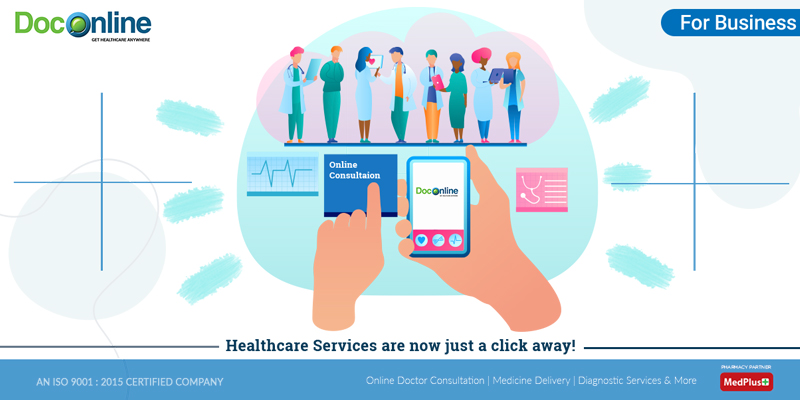The Future of Medicine: Discovering Subscription Based Healthcare Designs
The Future of Medicine: Discovering Subscription Based Healthcare Designs
Blog Article
The Rise of Subscription-Based Healthcare and Its Influence On Individual Care
As health care develops, the subscription-based model is gaining grip, promising to reinvent client treatment by offering predictability and availability. The capacity for these designs to improve medical care distribution raises pressing questions about their lasting sustainability and inclusivity. Are these subscription services the future of medical care, or do they run the risk of leaving susceptible populaces behind?
Recognizing Subscription Health Care Versions
Realizing the idea of subscription medical care models involves examining a transformative technique to medical services that emphasizes cost and accessibility. These designs, commonly described as straight medical care (DPC) or attendant medicine, have become ingenious alternatives to conventional fee-for-service medical care systems. Membership medical care enables patients to pay a set monthly or annual cost for a specified set of clinical services, which may consist of unlimited workplace brows through, regular examinations, and fundamental laboratory examinations, without the requirement for standard insurance coverage payment.
The framework of subscription medical care versions is designed to improve individual care by removing third-party payers and intricate billing codes, consequently lowering administrative problems. Medical care suppliers can focus much more on patient care, fostering more powerful patient-provider partnerships. This model likewise promotes preventative treatment by encouraging regular visits, as the economic challenge of per-visit fees is eliminated.
The membership version often equips healthcare companies to manage smaller person panels, permitting more tailored treatment. It aligns monetary motivations with patient health outcomes, as suppliers are inspired to preserve patient contentment and health. Overall, recognizing registration health care designs calls for identifying their possible to reshape just how treatment is supplied and accessed.
Benefits for Individuals and Companies

With a consistent income stream, medical care experts can dedicate more time to each patient, leading to an extra extensive and customized treatment experience. The focus on preventative care within registration strategies can lead to better client results and reduced long-term medical care prices.
Challenges and Worries
While subscription-based health care designs existing various advantages, they additionally come with a collection of obstacles and concerns that must be addressed. Access continues to be a significant problem, as these designs often target individuals who can afford regular monthly charges, potentially omitting low-income populations. This raises moral inquiries concerning fair accessibility to healthcare services. Additionally, the diverse nature of membership strategies can bring about complication amongst clients regarding protection specifics, potentially resulting in unmet assumptions or insufficient care.
Financial sustainability of subscription-based models is an additional worry. Service providers need to balance the set earnings from subscriptions anonymous with the variable costs of health care services, which may change because of unanticipated medical requirements. This can create pressure to limit solutions or boost costs, potentially influencing person complete satisfaction and care high quality.
Additionally, regulatory oversight of subscription-based health care designs is still evolving. The absence of standardized structures can lead to irregular service top quality and accountability, complicating efforts to guarantee patient defense. The integration of modern technology-- typically a cornerstone of these versions-- elevates questions regarding data privacy and protection, as delicate patient details could be vulnerable to violations. Dealing with these challenges is crucial for the effective and equitable blog implementation of subscription-based healthcare.
Influence On Patient-Doctor Relationships
One substantial impact of subscription-based health care versions on patient-doctor partnerships is the potential for improved continuity and individualized treatment. By embracing a membership model, physicians can handle a smaller sized patient panel, enabling for even more devoted time with each individual. This increased availability promotes a much deeper understanding of a client's medical history, lifestyle, and preferences, enabling much more customized therapy plans and interventions.

Nevertheless, it is vital to identify that while subscription-based models may benefit those that can afford them, they could unintentionally widen health care disparities. Patients that are incapable to join these web designs may experience decreased access to personalized care, possibly affecting their partnerships with doctor. Therefore, while the registration model uses promising advantages for patient-doctor partnerships, it also positions obstacles that need to be addressed to guarantee fair healthcare gain access to.
Future of Health Care Gain Access To

The function of technology can not be overlooked in this improvement. Telemedicine platforms and electronic wellness records help with seamless communication between clients and doctor, breaking down geographical and logistical barriers. Additionally, advancements in fabricated knowledge and data analytics can better customize healthcare by predicting person requirements and enhancing treatment plans.
Nevertheless, the future of healthcare accessibility additionally presents difficulties, such as ensuring equity across various socio-economic teams. Policymakers and medical care suppliers must collaborate to connect the electronic divide, guaranteeing that subscription-based designs stay inclusive and affordable. As these systems grow, they hold the guarantee of making healthcare more available, effective, and patient-centric.
Verdict
Subscription-based healthcare designs are reshaping client care by giving a stable expense structure and improving access. These versions enhance patient-provider relationships via customized care and routine check outs, stressing preventative wellness. Despite these benefits, challenges such as ease of access concerns for low-income populaces and the demand for equitable health care services continue. The increase of subscription-based medical care urges proactive patient involvement, which has the prospective to improve individual end results and contentment, signifying a transformative change in health care delivery.
As medical care develops, the subscription-based model is gaining grip, guaranteeing to revolutionize person care by using predictability and ease of access.Subscription-based healthcare versions supply distinctive advantages for both patients and carriers, improving the general medical care experience.As medical care systems advance, the future of health care accessibility frequently pivots on the combination of ingenious versions and innovations.Subscription-based medical care versions are reshaping patient treatment by offering a secure cost structure and enhancing ease of access. The surge of subscription-based health care motivates proactive person engagement, which has the potential to enhance individual outcomes and complete satisfaction, indicating a transformative change in healthcare shipment.
Report this page